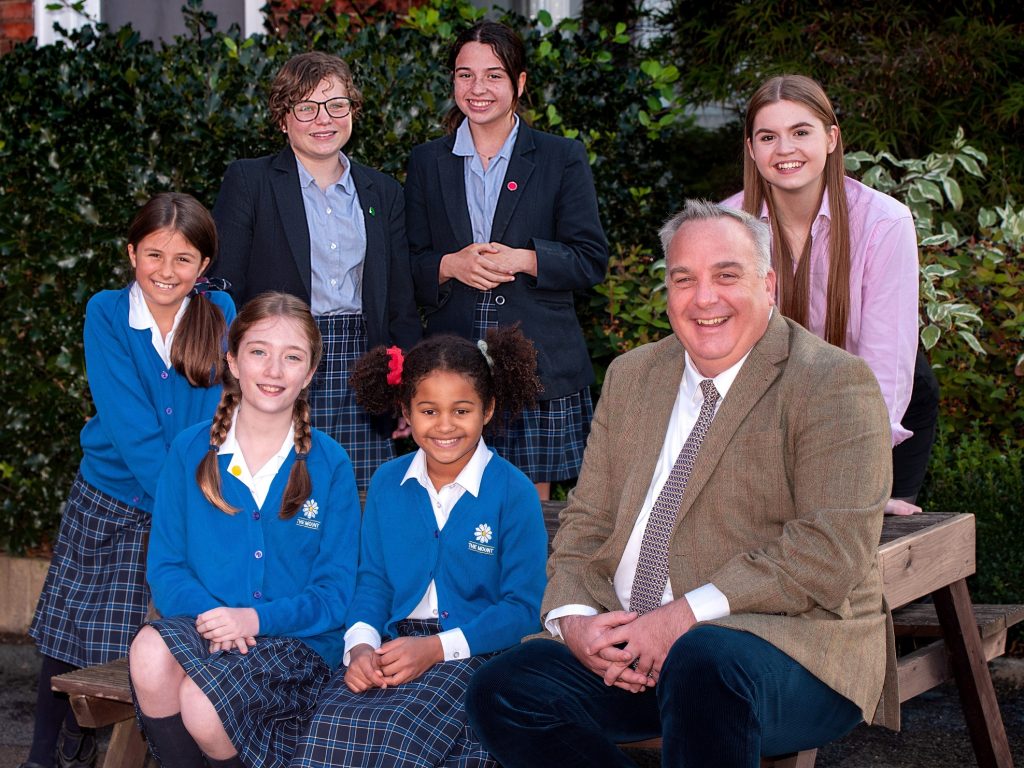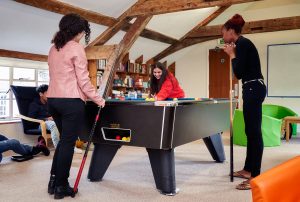“How dare they try to deny women their rights and their freedoms?” – US Vice President Kamala Harris
It doesn’t matter what perspective of politics, nationality or gender you bring to this issue, it’s impossible not to take to heart the simplicity of the point made by Kamala Harris. With the authority that comes from being the first female US Vice President, Harris asked her rhetorical question earlier this year at an election fundraiser for Democrat women legislators who support pro-choice rights.
With the legislative protections provided by Roe v Wade overturned by the US Supreme Court, women’s reproductive rights in the US now pass to the individual states to determine; America’s mid-term elections in those states this November take on a particular significance.
It is incongruous, uncomfortable, possibly even unwanted for a man to speak on the issue of women’s rights and their freedoms. But earlier this year, I became the first male in almost 225 years to lead The Mount School, an all-girl Quaker school in York, UK. The previous male headmaster was the school’s co-founder William Tuke who retired in 1804. Tuke and his wife Esther co-founded the school together in 1785 and, after her death in 1794, he dedicated a further decade of his life in service to the school.
In the short time I have been here, I have seen and learned very quickly how significant it is to be able to create space for girls and women to flourish on their own terms.
The Mount is an exceptional school. It is the UK’s only Quaker school for girls. That distinction alone gives us a unique ability to combine the dynamic benefits of the Quaker ethos with the powerful advantages of an all-girl education.
Other all-girl Quaker schools are Lincoln School in Providence, Rhode Island, USA and Friends Girls’ School in Tokyo, Japan. Our Quaker values – simplicity, truth, equality, peace, social justice and sustainability – are as relevant today as they were in the Tukes’ time when the Society of Friends opposed the global slave trade as vehemently as they opposed the brutalisation of the mentally ill.
It is a joy when a pupil outperforms their predicted grades. Equally, it is a privilege for educators, especially in a cross-cultural setting, to be able to unlock experiences outside of the curriculum that empower a pupil to realise something deeper about themselves and the world around them. But nothing quite prepared me for what I have seen at The Mount.
Girls benefit from an all-girls’ education. It’s as simple as that. I see girls at The Mount achieving outcomes which would be a stretch in a co-educational environment. When you review the statistics, the figures do not lie. Reports released last year by the Girls’ Schools Association show that pupils at girls’ schools achieve better results, are more likely to study STEM subjects, are more confident and emotionally more in control than those in the co-education streams.
But taking comfort from statistics and surveys is not enough. And this is where we loop back to the existential crisis that many women feel in the face of a series of male-dominated judicial and legislative set pieces that have just unfolded in America. At stake are women’s health and female reproductive rights, yet the weight of women’s voices appear unheeded. It is a reminder of how few of the so-called “great issues of our time” should be considered settled.
Ever since George Fox founded the Quaker movement in the mid 17th century, Quakers have been actively engaged in the critical issues of the time. To prepare our students for this kind of political reality, is why The Mount is transforming its student offer into areas that historically have been male-dominated.
What this looks like in practical terms is the introduction of a super-curricular programme that extends well beyond the classroom and includes lecture and seminar programmes in the Sixth Form, to extend and develop that provision with a view to our University-destination profile. Much of this is super-curricular programme is driven directly by the girls themselves.
Meaningful actions to bring about change in this globalised world require a degree of grit and endurance with a strong core message. This is why initiatives like our new Borealis Society hold such appeal. The Borealis Society is an academic programme throughout the winter that pivots into a physically challenging expedition to Boreal and Arctic areas in the summer. Girls develop their academic interests and reflective practice through this demanding, life-enhancing three-to-four-week experience. This Sunday we travel to Iceland; the second Borealis Society trip will be to Greenland.
I referred earlier to keeping space for girls to flourish on their own terms; a girls’ school is a perfect, powerful microcosm for seeing that dynamic at work. When they have safe space in which to discuss, debate and respectfully disagree, girls lose their fear of making mistakes. Instead, they learn to embrace the process and to embrace change. The knock-on effect is an inevitably positive influence on girls’ resilience and future successes.
I am proud of the progress that each Mount pupil makes every day. Mount alumnae assure me that they cherish these experiences throughout their lives, and it’s no wonder that so many of those lives are adventurous and extraordinary. It is my privilege to lead the school that empowers these women, and women-to-be, with the skills and abilities to steadfastly claim and retain their rights and freedoms.
– David Griffiths, Principal, The Mount School York
David Griffiths joined The Mount School York in January of this year, having been Headmaster of Wycombe Abbey School in Changzhou, China. He has held senior positions at other leading boarding schools in the UK.
Categories: Mount School York







